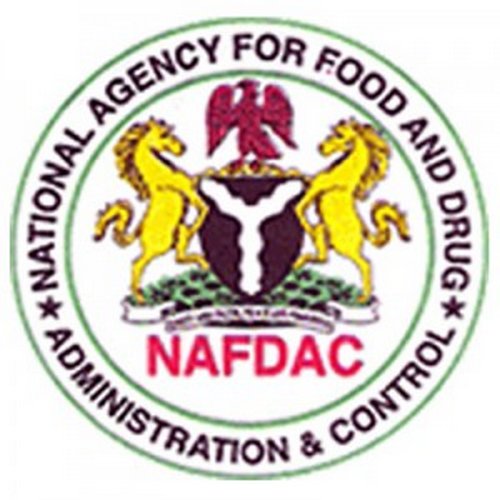.Moves against solid fats in foods
With Non-Communicable Diseases, NCDs, accounting for 74 per cent of all deaths worldwide, the National Agency for Food and Drug Administration and Control, NAFDAC, has scale-up efforts towards the elimination of Trans Fatty Acid, TFAs, from food supplies in Nigeria.
Speaking at a briefing on the newly gazetted fats, oil and food-containing Fats, Oil Regulation 2022 and Pre-packaged Food Labelling Regulation 2022, the Director-General of NAFDAC, Prof Mojisola Adeyeye said that the Agency was collaborating with the Network for Health Equity and Development, NHED, Corporate Accountability and Public Participation Africa, CAPPA, Global Health Advocacy Incubator, GHAI, and GHAI on the issue.
She further lamented that more than 36 million people die annually from NCDs, adding that among these, cardiovascular diseases, CVDs, are the number one cause of death, accounting for 17.5 million deaths annually.
She noted that in Nigeria, NCDs are estimated to account for about a quarter of total death in the country.
“This means that the probability of dying between ages 30 and 70 years from NCDs is 20 per cent,” she disclosed.
Adeyeye said that at the 2018 World Health Assembly in Geneva, the World Health Organisation, WHO, released an action package called REPLACE that includes policy recommendations and interventions for world leaders, stressing that part of the recommendations was to ban the use of partially hydrogenated oils, that is the source of industrially produced TFAs, in all foods and to set limits on the amount of industrially produced TFAs, to not more than two per cent of the total fat content in all Foods.
She said following WHO’s recommendation, NAFDAC with the cooperation, collaboration and support of the Federal Ministry of Health, Federal Ministry of Justice and the Trans-Fat Coalition Partners has worked assiduously towards achieving the two prong pathways.
She said the Agency is currently working with the industry and partners to find alternative sources to the existing partially hydrogenated oils that are the source of industrially produced Trans-fats.
“The Agency has reviewed the Fats and Oil Regulation 2005 and now has a newly gazetted reviewed regulation known as Fats, Oil and Food Containing Fats and Oil Regulation 2022.
“This regulation has also addressed the second pathway for elimination of industrially TFAs with the limit of not more than two per cent (0.02ppm) of the total fats in fat, oil and food containing fats and oil products as recommended by WHO. In addition, the Pre-packaged Food Labelling Regulation 2005 has also been reviewed to take care of the labelling requirement for Trans-fats hence we now have a reviewed and gazetted Pre-Packaged Food Labelling Regulation 2022.”
Also speaking, Executive Director, CAPPA, Akinbode Oluwafemi, said with the regulations in place, stakeholders will be able to combat some risk factors of NCDs, while applauding NAFDAC for its resilience and dedication to safeguarding the health of the Nation through partnerships.
On her part, the Nigeria Coordinator, GHAI, Joy Amafah said since the inception of the WHO REPLACE Action Framework, over 43 countries have passed relevant policies to set standards for TFA consumption in line with global best practices.
“Nigeria now stands as the first country in West Africa and the 2nd country in Africa after South Africa to set mandatory standards for TFA, maintaining their place as the giant of Africa and an example for others within the region to emulate.”
Amafah assured that GHAI will continue to partner with NAFDAC and relevant MDAs on their related food programmes towards achieving healthier food options and ultimately, curbing morbidities and mortalities caused by NCDs.
[8:07 PM, 8/8/2023] CNL THOMAS Imonikhet: FROM INFO DAILY
Pastor Taiwo Odukoya: Times and life of Pastor Taiwo Odukoya
The founder of Fountain of Life Church, Pastor Taiwo Odukoya, died on Monday in the United States, according to the church statement on Tuesday.
Here are key moments of the late pastor:
Taiwo Odukoya was born on 15 June 1956 in the city of Kaduna, northern Nigeria.
He graduated from the University of Ibadan, where he held a degree in petroleum engineering in 1981.
As a petroleum engineer, he started work at the Nigerian National Petroleum Corporation (NNPC) in April 1982 after the compulsory one-year National Youth Service Corp (NYSC) scheme.
In 1980, Odukoya met Bimbo Williams at the University of Ibadan and the two began a relationship that led to their marriage in 1984.
Taiwo and Bimbo Odukoya co-founded The Fountain of Life Church in 1992 and the marriage produced three children.
The Church has several missions in South Africa, the United Kingdom, the United States, Switzerland, Kenya, Equatorial Guinea, the Republic of Benin, Côte d’Ivoire, the Republic of Benin, and Togo.
On 10 December 2005, Bimbo Odukoya, along with 102 other people, died on the crashed Sosoliso Airlines Flight 1145.
On 5 January 2010, five years later, Taiwo Odukoya got married again to Rosemary Simangele Zulu from South Africa and the union produced two boys.
In 2014, nine years after the death of his first wife, Odukoya readdressed the matter of the plane crash that made him a widower. He claimed that pastors are well advised to use private jets: such aircraft better facilitate pastoral ministry and are a safer means of travel than commercial flights.
In November 2021, Odukoya lost his second wife to cancer.
Odukoya proclaimed a firm belief in the role of the church in the community and expresses it through several outreach projects including a hospital, an orphanage, a school for destitute children, a farm, a water project which offers boreholes at strategic locations for people who have no access to clean and potable water and a skill acquisition and entrepreneurial institute for the less privileged.
On April 19, 1997, Taiwo Odukoya established Discovery for Men and Discovery for Women, non-denominational outreaches to men and women designed to help them maximize their potential.
These outreaches reach out to hundreds of thousands of men and women annually through quarterly rallies, mentorship programs, and a vocational center to equip them with technical and practical life skills.

























